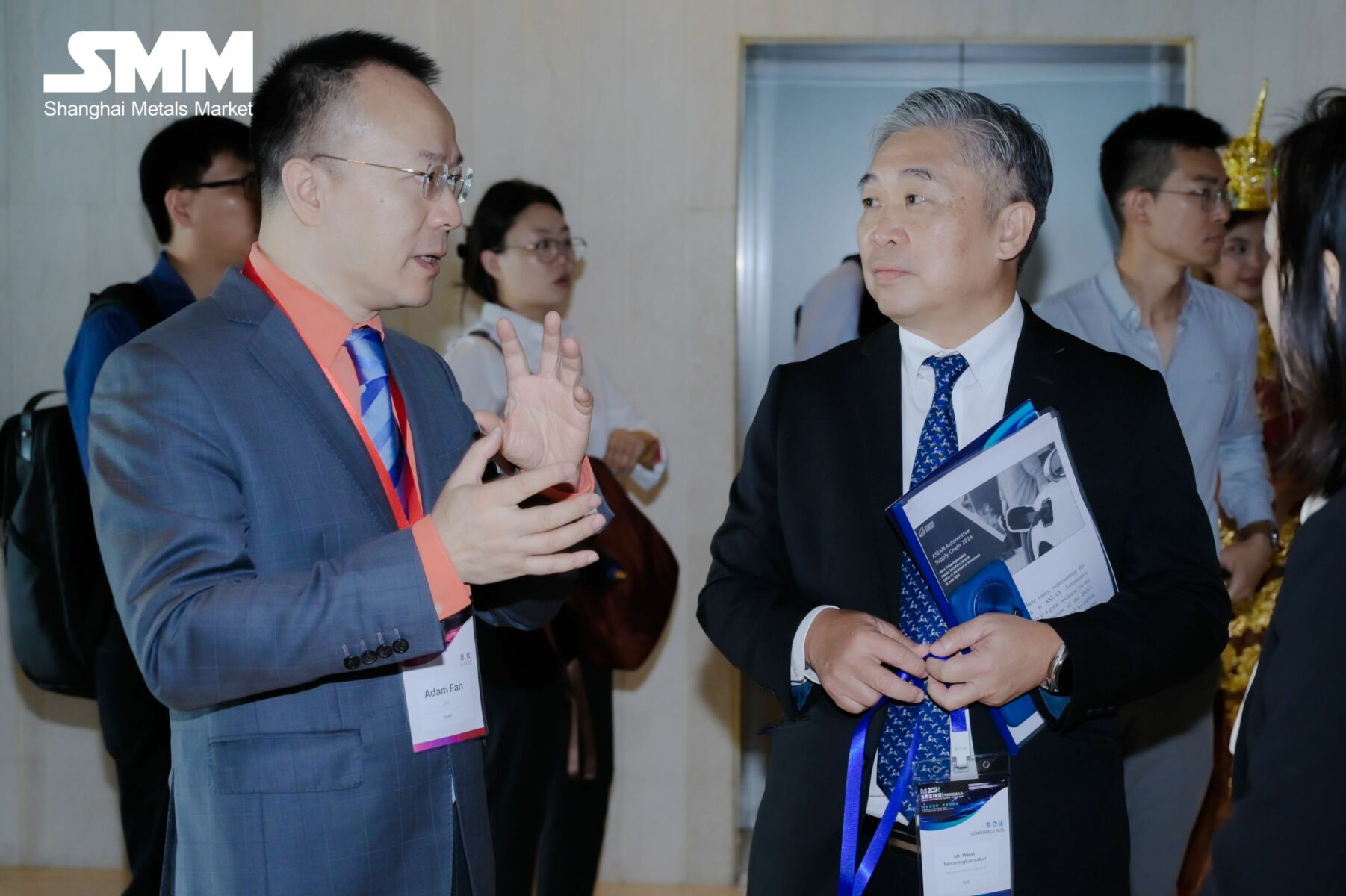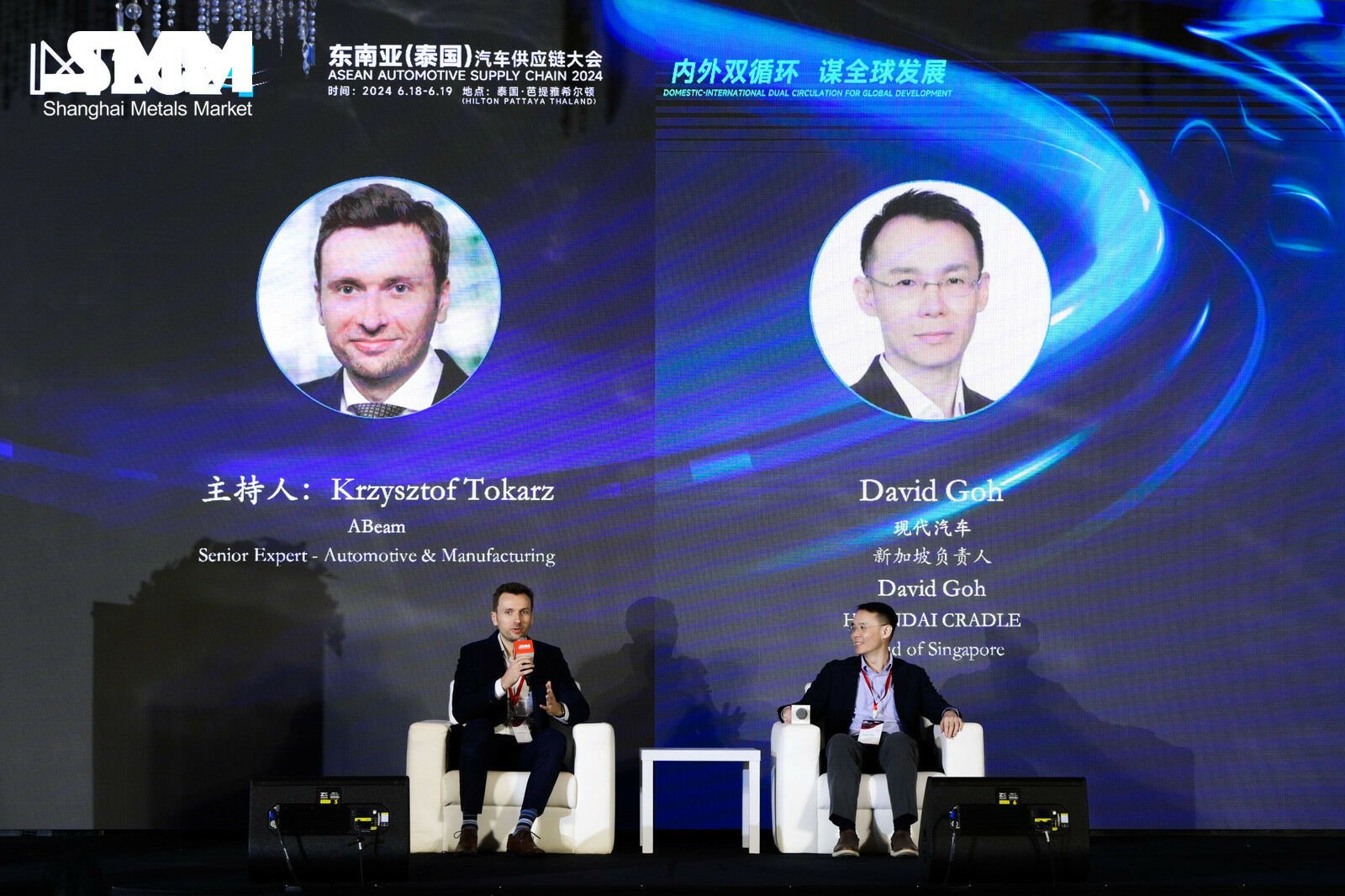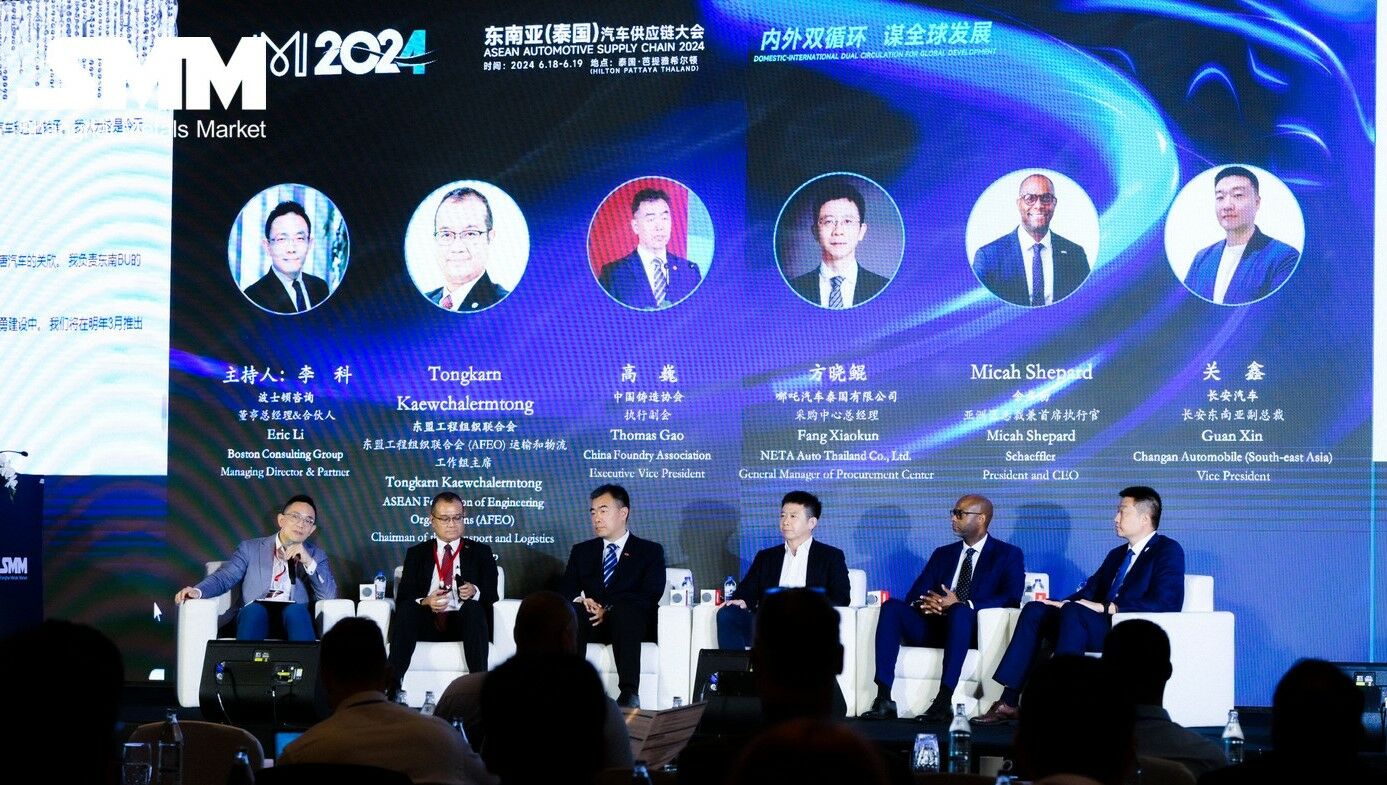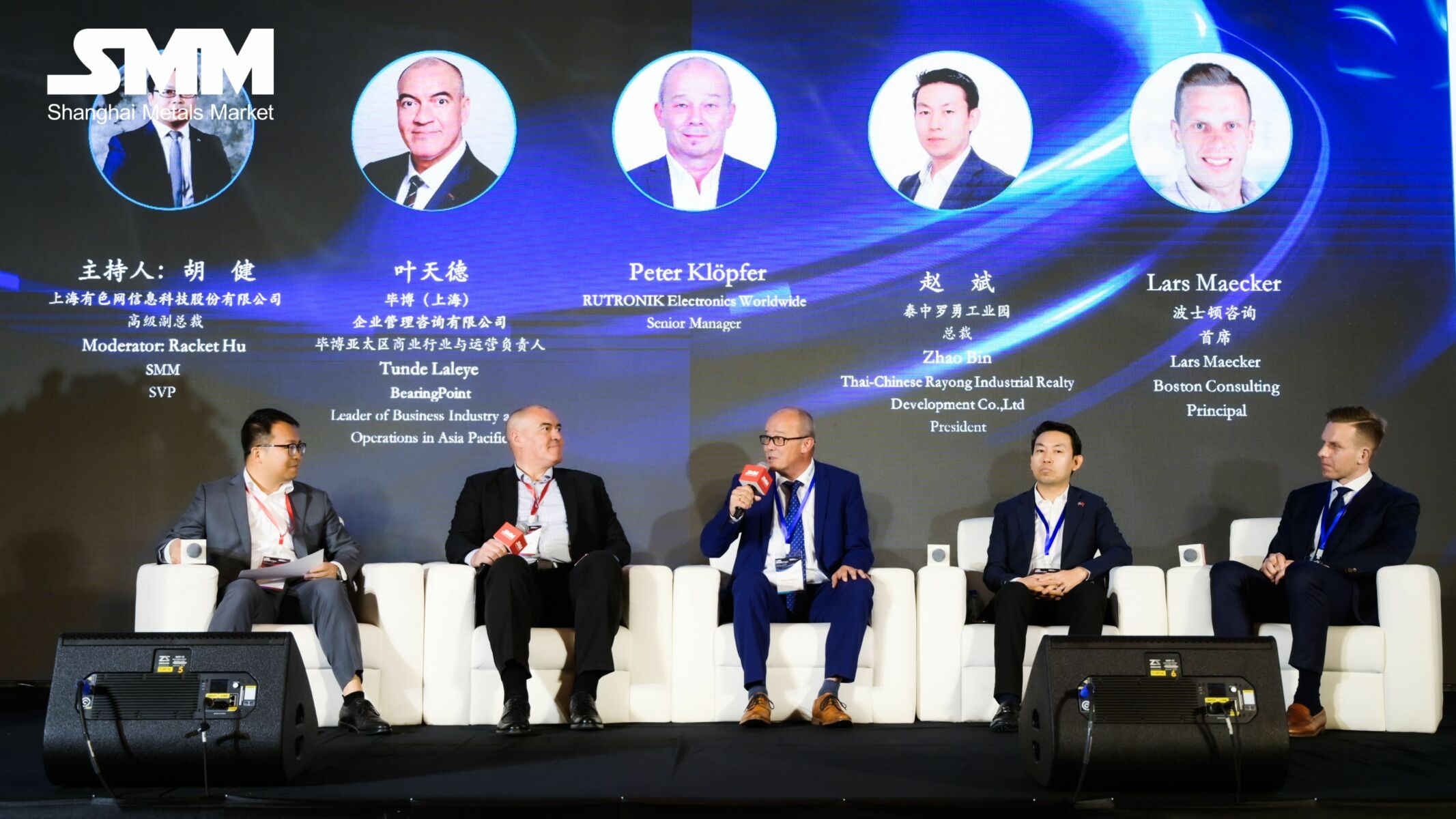How to succeed in Thailand’s automotive market: Insights from SMM’s industry event

As one of the largest manufacturers in Southeast Asia, Thailand’s automotive industry boasts impressive growth opportunities, particularly in the electric vehicle (EV) sector. In addition to its geographical location, competitive labour costs, well-developed infrastructure, and supportive business environment, the country also has a pro-investment government. Take, for example, the incentives for joint ventures between Thai and foreign companies to manufacture automotive parts for different types of vehicle engines, which was approved earlier this August by the Board of Investment (BOI).
With all these advantages in play, it’s clear why Thailand is a magnet for global automotive brands, especially from China. Plus, the cultural similarities between Thailand and China give Chinese companies an extra edge. Notably, leading Chinese companies, such as BYD, Changan Automobile, and Neta, are already establishing a strong presence in the Thai market.
Drawing on insights from the ASEAN Automotive Supply Chain 2024 conference, hosted by SMM (Shanghai Metals Market) at the Hilton Pattaya on June 18-19, here’s a practical guide on thriving in Thailand’s evolving automotive sector.

1. Managing investment risks in a high-interest environment
Succeeding in Thailand’s automotive market in today’s high-interest-rate environment was a central topic at the Investment Risk and Bankability of the Automotive Industry panel at the SMM Thailand Automotive Conference. According to experts at the panel, tech startups face difficulties in fundraising since traditional venture capital (VC) firms are increasingly cautious, especially with deep tech projects like AI and advanced driver assistance systems (ADAS). While these technologies are critical for advancing Thailand’s automotive sector, particularly as the market shifts towards EVs, they require significant upfront capital and focus heavily on hardware.
Corporate VCs, on the other hand, are more inclined towards these investments. Many of them recognise the critical role that technical expertise and long-term R&D commitments play in sustaining competitiveness in the automotive industry. Thus, successful market entry in Thailand hinges on strategic investment approaches.

2. Implementing effective localisation strategies
The Localization Strategies for Auto Parts Companies Settlement in Thailand: Cost of Production, Manufacturing Tech, Cost Advantage, Intelligent Manufacturing panel discussion mentioned how Thailand offers significant investment advantages. These include BOI policies that provide low tariff advantages, minimal cultural differences with China, and a well-developed industrial infrastructure. These factors make Thailand an attractive destination for Chinese Original Equipment Manufacturers (OEMs) and their supply chains. As secondary and tertiary enterprises follow, the improvement of supporting resources will help reduce manufacturing costs.
However, successful localisation of auto parts production requires collaboration with local enterprises. This approach not only increases the degree of localisation but also helps mitigate risks associated with entering a new market. Companies that effectively localise their operations will be better positioned to succeed in Thailand’s competitive automotive market.
3. Leveraging on Thailand’s transformation towards electrification for OEM success
Thailand’s journey towards electrification presents significant opportunities for Original Equipment Manufacturers (OEMs), as discussed in the Accelerating Thailand’s Electrification Transformation from a Supply Chain Perspective panel. The nation’s unique advantage lies in its large Southeast Asian population, the rising middle class, and the fact that automotive exports constitute 50% of its production. Additionally, the maturity of Thailand’s automotive parts and components technology further strengthens its position as a major player in the global automotive market.
Aside from those strengths, OEMs can also leverage Thailand’s skilled technology base in casting, stamping, and injection moulding. Plus, the high acceptance of innovations, the well-organised supply chain, and the supportive EV 3.5 policy help create a favourable environment for OEMs.

Experts at the SMM Thailand Automotive Conference pointed out four key capabilities that OEMs should focus on in order to thrive in Thailand’s electrification transition. These include establishing competitive PRI contracts, offering competitively priced products, understanding customer needs, and adapting quickly. For suppliers, they mentioned three keywords for success: long-term, customer-centric, and expanding capabilities.
Furthermore, the experts categorised the key points of success for both OEMs and suppliers during Thailand’s transition to EVs into trust, fostering strong relationships with partners, increasing localisation, and securing support.
Chinese automakers have been particularly active in applying these key points of success and leveraging Thailand’s favourable environment. BYD, for example, has invested 17.9 billion baht in a new facility to produce 150,000 passenger cars annually from 2024. They partnered with Rever Automotive, backed by Siam Motors Group, as their exclusive dealer in Thailand. Great Wall Motors (GWM) has also made significant strides by partnering with local entities like the Tourism Authority of Thailand to promote their “GWM Initiative.” Plus, they have operated two full-production lines in the country since 2021.
4. Building a green supply chain
The next thing companies should focus on is the Environmental, Social, and Governance (ESG) criteria and carbon reduction standards. The panel discussion titled The Green Supply Chain of Automotive Materials mentioned that the automotive industry in Thailand, like many others worldwide, is grappling with the complexities of these standards, particularly the lack of harmonisation across different regions. This inconsistency creates challenges for manufacturers and suppliers trying to navigate the regulatory landscape, resulting in confusion and potential inefficiencies. That’s why reducing carbon emissions across the entire vehicle life cycle, from manufacturing to consumer use and recycling, is becoming increasingly important.
Moreover, with the European Union’s Carbon Border Adjustment Mechanism (CBAM) set to impose carbon differential taxes on materials that don’t meet stringent emission standards, automotive companies exporting to the EU must prioritise green supply chain practices. Consequently, for companies looking to thrive in Thailand’s automotive sector, embracing global sustainability trends and adhering to regulatory requirements is essential rather than merely beneficial.
5. Grasping the challenges and opportunities of electrification
While investing in Thailand’s automotive industry offers numerous benefits, it also presents certain challenges. As discussed during SMM’s technology panel on the Challenges and Opportunities of Electrification in Southeast Asia’s Automotive Industry, the new energy vehicle (NEV) supply chain in Thailand is still in its infancy, with several critical aspects yet to be fully developed. Many critical areas, such as supply chain systems and talent allocation, are underdeveloped. The market faces hurdles as well. These include delays in the delivery of electronic components, shifts in demand patterns, and more complex CO2 and emissions calculations due to increasing joint ventures.
In order to overcome these challenges, companies should strengthen all parts of the supply chain, from developing talent to improving logistics. One way to do it is, again, by building strategic partnerships within the industry. Collaboration with regional governments, large industry players, and even competitors can help share resources, spread costs, and introduce innovations faster. These partnerships are crucial for automation and component suppliers, as they can leverage shared expertise and infrastructure to build a stronger supply chain.

Another challenge is the varied customer demands across Southeast Asia. Different markets have unique preferences for vehicle models and driving ranges, shaped by local factors like infrastructure, climate, and consumer behaviour. Therefore, companies need to be flexible and innovative in adapting their products to meet these specific needs if they want to remain competitive and relevant in Thailand’s automotive market.
Succeeding in Thailand’s automotive market
Thailand’s automotive market, with its rich opportunities and strategic advantages, is a promising destination for global automotive brands, particularly those venturing into the electric vehicle (EV) sector. However, succeeding in the industry requires a nuanced understanding of the market, proactive localisation strategies, and a commitment to sustainable practices. SMM is well-positioned to support these efforts.
SMM is a leading integrated platform specializing in both non-ferrous and ferrous metals. They offer a wide range of services in the metals, mining, and renewable energy sectors, including global product quotations, industry data such as production capacity and output, consulting, and customer resource docking. To promote industry development and foster collaboration, SMM has also organized over 40 international conferences, attracting more than 20,000 delegates from over 30 countries. These events feature industry leaders who share the latest trends and strategic decisions and include organized field trips to help participants gain in-depth insights into the current state of the supply chain and investment prospects. This pairs with the advanced R&D and marketing team that allows SMM to make significant contributions to the global non-ferrous metals and renewable energy sectors.
SMM has established an impressive international presence, with offices strategically located in countries such as China, Thailand, Singapore, Indonesia, the UK, and the US. Their official website boasts over 3 million registered users, with more than 4,000 new registrations daily. Thanks to its comprehensive metal pricing and industry data updates, the website attracts over 400,000 daily views. Additionally, SMM provides strategic consulting services to clients like BYD, SAIC Motor, BMW, Tesla, and others across the entire non-ferrous metal industry value chain.
Thanks to their comprehensive services, industry expertise, and global reach, SMM is more than capable of helping companies enter and thrive in Thailand’s automotive market. The recent SMM Thailand Automotive Conference is just one example of how they use their extensive network and deep industry knowledge to create opportunities for growth and collaboration in emerging markets. It brought together car manufacturers, industry experts, and government officials to talk about important topics such as market trends, investment opportunities, and regulatory challenges specific to Thailand. Thus, helping companies make informed decisions and achieve success.
For more detailed insights and guidance on thriving in Thailand’s automotive market, visit the SMM website.
Sponsored
Latest Thailand News
Follow The Thaiger on Google News:


























